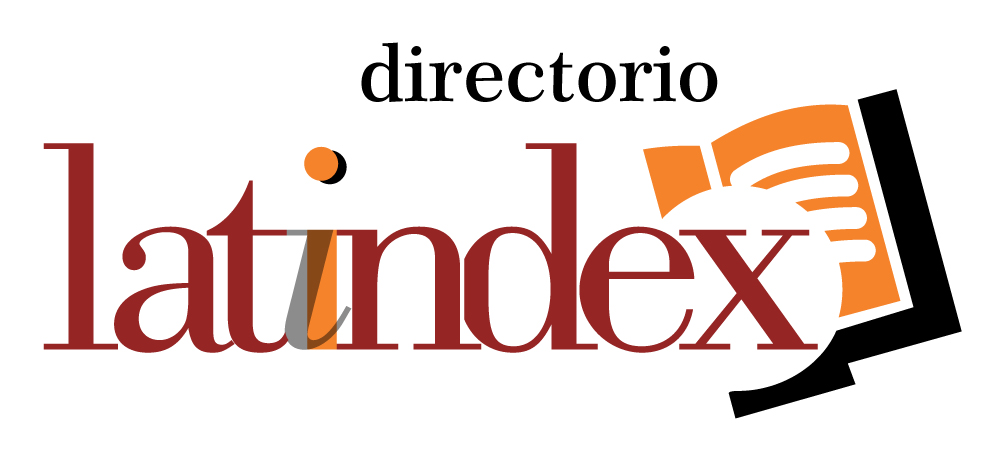Vol. 4 No. 2 (2013)

The first words are not necessarily the most important. Still, it is up to them to dictate the continuity and rhythm of reading. Here we have the privilege to invite you to read more this issue of Inquietude journal, fruit of a seriousness inherent in the universe of academic research combined with the effervescence of young researchers in the field of philosophy. Commitment that generates, of course, the most satisfactory results. We recall that, recently, we obtained the qualification Qualis B5 - which gives more importance and notoriety to the journal - this fosters the interest with which philosophy students from various parts of the country seek us.
In this edition we have eight articles, a section dedicated to the Philosophy Week, two interviews [respectively by Willian Bento Barbosa and Nádia Junqueira Ribeiro] with important researchers in Hannah Arendt - Adriano Correia and Yara Frateschi - besides the part dedicated to the dissemination of abstracts of monographs and dissertations of students who completed their bachelor’s degree and master’s degree in philosophy at the Federal University of Goiás (UFG). On the cover we have a creation by Andréia Ferreira - graduated in philosophy - representing the disform. A contradiction in principle, because the texts must fit into a series of formal requirements for their submission and subsequent dissemination. However, there is no formality that prevents the disform to emerge as a restlessness in the very content of what is written. Not rarely, disform is what we find as philosophical thought, if compared to the world around us. But what other option would we have from a context taken by passivity in which the perverse of the real is less strange than a deformity of thought?
In the initial article The anthropological genesis of religion in Ludwig Feuerbach [by Felipe Assunção Martins] we have a theoretical reconstruction of the human origin of God, as well as a critique about religious alienation. The article helps us to think about how the anthropological truth of God and religion, according to Feuerbach, has as its principle a theory of human consciousness and essence. The philosopher understands man as being conscious of his kind.
In The relation between feelings and the study of morality [by Ana Gabriela Colantoni] the reader will encounter different philosophical perspectives about the notion of pleasure, and how the actions that provide pleasure relate to moral issues in the works of Aristotle, Kant and Mill. Next, the contribution of the German philosophers Hegel and Nietzsche to the establishment of a Christian ethos, and the characteristics that lead the Hegelian philosophy to a philosophy of fullness, is the subject of the following article [by Adilson Felicio Feiler], entitled The Christian ethos in Hegel and Nietzsche from the concepts of "fate" and "love".
On the arts of government of captive spirit: Meeting points between Nietzsche and Foucault [by Walquiria Pereira Batista] We have a study that points to a possible approximation of Friedrich Nietzsche's and Michel Foucault's thought regarding the constitution of the modern state and a new subject. While Foucault analyzes the emergence of the arts of government having as bias the construction of modern subjectivity, Nietzsche thinks the concept of captive spirit in which the individual, in search of a supposed peace, would be forged by modernity.
Although the ontology of Paul Ricouer keeps human action as a center, there is an attempt to keep it plural, in regard to the most diverse ways of saying the self. The speculative character of his ontology, as well as the direction of understanding oneself's maintenance from the relation with otherness is present in the article The ontology of acting by Paul Ricoeur: Alterity and plurality [by Sabrina Ruggeri]. A phenomenology of existence: On Cézanne's doubt by Maurice Merleau-Ponty [by Luana Lopes Xavier] aims to analyze the proposal of Cézanne’s painting, as well as the existence-art relation present in his work in the light of Merleau-Ponty’s thought.
The historical moment of revitalization of American pragmatism and the consequences of this movement added to the linguistic instrumental of post-analytic philosophy is treated in The revitalization of American pragmatism in the 1970s: Richard Rorty’s pragmatic-linguistic turn [by Flávio Oliveira]. Finally, we have the last article of this section entitled On the permanence of exception: The case of the state of Goiás [by Pedro Penhavel]. In this article the author appropriates concepts of political philosophy by Walter Benjamin and Giorgio Agamben and sociologists analysis such as Francisco de Oliveira and Loïc Wacquant to address the issue of suppression of fundamental rights and the escalation of police violence in Goiás during the post-military-dictatorship period.
In the space for the Philosophy Week we have the article Art and politics in the thought of Jean-François Lyotard [by Rafael Silva Gargano]. In the present text, Inquietude readers will be led to understand the roots of the aesthetic discussions present in Lyotard’s philosophy, as well as its discomfort relevant to the Marxist theory of his time. Such discomfort, it should be said, is fundamental for the understanding of the relation the philosopher establishes between art and politics, evidenced in the essay Notes on the critical function of the work of art, published in 1970. In The theory of will to power as a character of existence [by Eder David de Freitas Melo] we can observe that, in the Nietzschean conception that deals with the world, and everything that is in it, will to power is all there is. Within this perspective, the article brings us an analysis of some aspects of this theory of will to power, thus contributing to understand how the German philosopher - Friedrich Nietzsche - uses the same conceptual arrangement to qualify all existence.
We hope the reading so far has motivated our readers to continue through the texts here. We still take the opportunity to thank all the people who submitted texts for evaluation. To those who did not have the text published, we ask you to consider the feedback given through the reviews, so you can, at an appropriate time, send us again for possible circulation. To all professors in the Faculty of Philosophy and the Philosophy Course at Goiás City Campus our thanks for the incentive and for all collaboration destined to us. To the professors who provided us with external opinions, we would like to point out this number would not be possible without their rigorous work. To the editorial team - now joined by students Eder David de Freitas, Regis Lopes and Samarone Oliveira - for their constant involvement and dedication.
We could not fail to address the Group of Studies in Biopolitics of the Faculty of Philosophy of UFG that gives us space for the launch of this edition in the IV Colloquium of Biopolitics and, more than this, has collaborated to promote our journal encouraging the publication of texts presented in the colloquiums held by the Group, as is the case of the Dossier Biopolitics published in the edition (v. 3, n. 2) of 2012. We also reinforce the invitation to submit the papers presented in this colloquium for evaluation and publication in the next issue, to be released in July 2014.
Turning back again to the beautiful work that appears as this edition cover, we hope the expectation of restlessness can drive us as those who, not immediately formalizing with a world given to us, announce the disform contained in the questions that now bother us.
And finally, an insufficient thanks to a very special person, an artist, a creator not only of significant and disturbing artistic beauties: Pedro Labaig. Even after completing the Philosophy course at UFG, he continued to be responsible for the hard work of taking care of the final art and the diagramming of Inquietude. At a distance, in Paris, amid the painting of his beautiful paintings and his master’s degree in Philosophy, he remained among us as collaborator, participant, responsible, a gentleman, as he always proved himself. As a very small part of our gratitude, we will now try to walk with our own legs, to relieve Pedro from this task. However, by his greatness, hes has already been fixed in the memory of our journal.
The Editing








